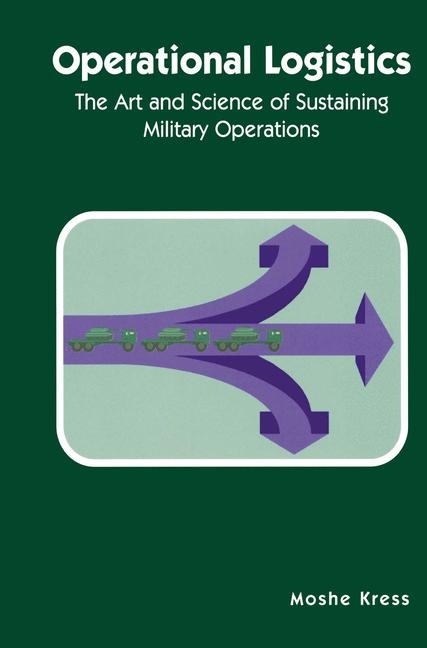
Operational Logistics
Kluwer Academic Publishers (Verlag)
978-1-4020-7084-6 (ISBN)
- Titel erscheint in neuer Auflage
- Artikel merken
Operational Logistics: The Art and Science of Sustaining Military Operations explores military logistics in terms of the theoretical foundations of operational logistics (OpLog) and its applications. The theoretical foundations are examined with regard to two dimensions. First, the artistic or qualitative aspects of contemporary logistics are looked at in the context of the operational level of war. These OpLog aspects include principles, imperatives and tenets, which are stated and analyzed. The second dimension relates to the scientific aspects of logistics. It is manifested by a formal network model that represents the structural and operational features of an OpLog system. Hence the book examines both artistic and scientific dimensions of military logistics and integrates the respective qualitative and quantitative aspects into a unified and definitive presentation of operational logistics. Chapter 1 presents a general introduction to military logistics. Chapter 2 discusses the general structure and characteristics of logistics and describes its three levels - strategic, operational and tactical. Chapter 3 focuses on Operational Logistics (OpLog).
Chapter 4 deals with the logistics planning process. Chapter 5 addresses the issue of logistics information. Chapter 6 deals with forecasting logistics demands. Chapter 7 introduces the first version of the logistics network model. Chapter 8 addresses an important property of an OpLog system - Flexibility. Chapter 9 discusses two major (and dual) issues in OpLog practice: force accumulation and medical treatment and evacuation. Chapter 10 presents an inter-temporal network optimization model that is designed to determine deployment and employment of the support chain in an OpLog system.
Dr. Kress is a Research Fellow at RAFAEL, heading the Logistics and Combat Modeling Branch of the Center for Military Analyses (CEMA), Haifa, Israel. He also teaches at the Faculty of Industrial Engineering and Management, Technion - Israel Institute of Technology. Dr. Kress has been leading major logistics research projects for the Israel Defense Forces (IDF) for over a decade.
Preface. 1. Introduction. 2. Structure, Terminology and Analytic Tools. 3. The Foundation of Operational Logistics. 4. The Planning Process. 5. Logistic Information. 6. Forecasting Logistic Demands. 7. The Visual Network Model. 8. Flexibility in Operational Logistics. 9. Two Critical Processes in Operational Logistics. 10. Optimizing the Logistics Network. Index.
| Zusatzinfo | biography |
|---|---|
| Sprache | englisch |
| Maße | 156 x 234 mm |
| Gewicht | 553 g |
| Themenwelt | Sozialwissenschaften ► Politik / Verwaltung |
| ISBN-10 | 1-4020-7084-5 / 1402070845 |
| ISBN-13 | 978-1-4020-7084-6 / 9781402070846 |
| Zustand | Neuware |
| Informationen gemäß Produktsicherheitsverordnung (GPSR) | |
| Haben Sie eine Frage zum Produkt? |
aus dem Bereich


